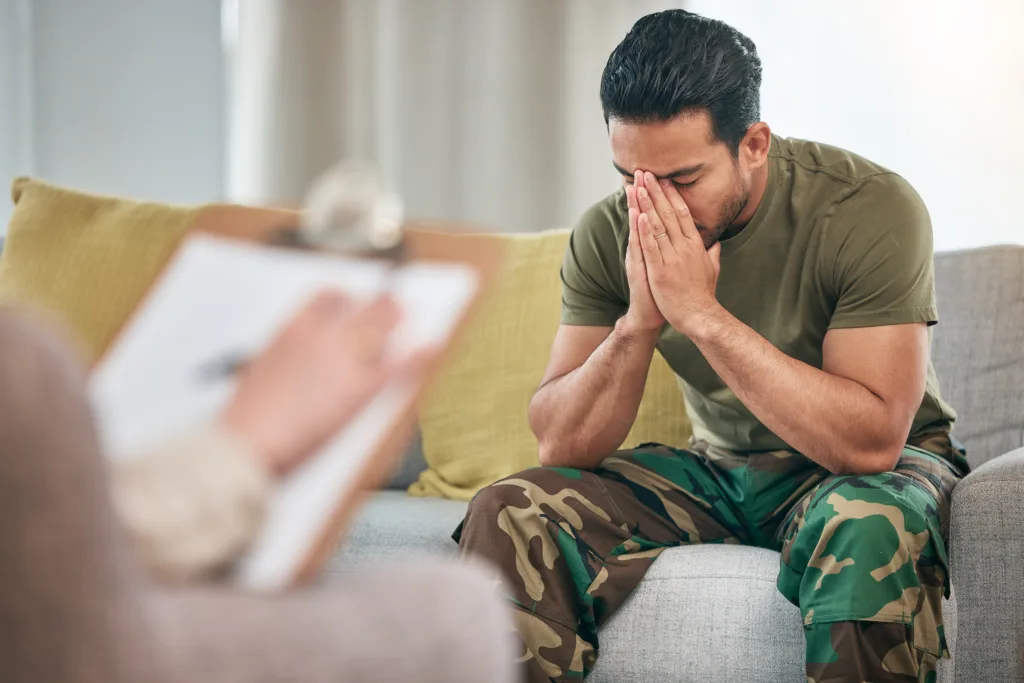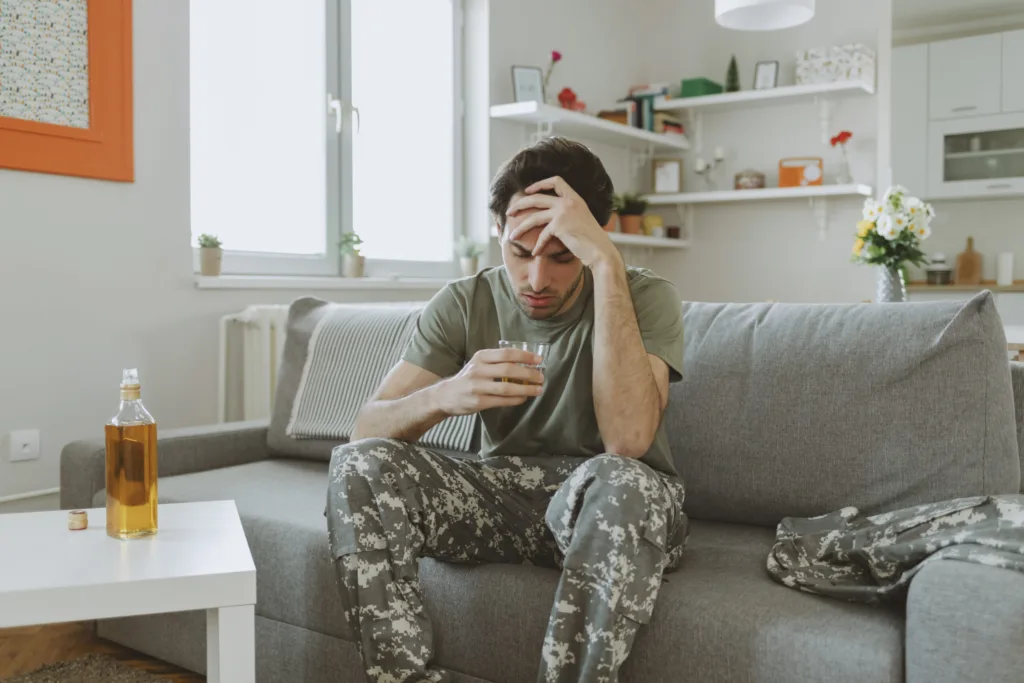What Are the Benefits of Group Therapy for Veterans?

In group therapy, a therapist leads a session with roughly 5-to-15 clients. Psychotherapeutic groups often complement individual therapy sessions in a treatment plan and may focus on a specific issue all clients are working on, such as substance use, anger or grief. Additionally, there are different therapeutic groups, from support groups to skills development groups, depending on the client’s needs.
Opening up about personal problems in a room full of strangers can be intimidating the first time. Despite this initial hesitation, participating in group therapy can be rewarding, with benefits that reach far beyond simply addressing one’s symptoms or struggles. For example, group members can serve as a support system for one another, keeping each other accountable. Group therapy can also enhance social and communication skills.
Group therapy benefits
In general, group therapy can be beneficial for several reasons:
- Opportunities to learn from others in a similar situation
- A greater understanding of your own and others’ thought and behavior patterns
- Seeing that you’re not alone
- Observing group members reacting to one another
- Learning tools for coping with difficult emotions
- Working together as a group on shared problems
Below are a few of the reasons why veterans in particular can benefit from participating in group therapy as part of a treatment plan for substance use and co-occurring mental health disorders, such as post-traumatic stress disorder (PTSD).
Camaraderie with other veterans
During military service, deployment and combat, veterans have faced unique experiences only other service members can understand. Rather than trying to relate to civilians in a group setting who don’t know what they’ve been through, the ability to connect with a room full of people who “get it” could make veterans feel less alone and more engaged in treatment.
In addition, veterans are trained to both set aside their own emotions and collaborate as a unit. Where a veteran might feel discomfort focusing on his or her problems, discussing and strategizing about shared issues and struggles as a group would be much more familiar and comfortable.
Peer Support
Peer support is an evidence-based program where veterans support each other as they manage an array of challenges such as substance use, returning to civilian life, mental health disorders, PTSD and more. Programs may be group-based or one-on-one and employ a certified peer specialist who is experienced in the unique challenges that veterans face.
These groups provide connections between veterans in a moderated environment that may not be available in traditional peer support groups as they navigate challenges and disorders that stem directly from their military service. Through open dialogue and a supportive environment, peer support allows veterans to learn from other service members who are also pursuing recovery.
Flexibility
Group therapy is adjustable. Each member of a psychotherapeutic group brings unique perspectives and experiences, allowing for more free-flowing conversations that can inform the direction of the session. For example, the therapist might have a pre-planned agenda for the session, but one of the group members arrives with a specific concern or distressing symptom that winds up shifting the focus. This presents an opportunity for other members of the group to share valuable insights that wouldn’t otherwise arise in one-on-one therapy between a clinician and a client.
Increased empathy
Individuals struggling with substance abuse or mental health, especially where feelings of self-loathing or a negative self-image are involved, may be hard on themselves, leading to unhelpful behaviors or thought patterns. We’re rarely as critical of others as we are of ourselves.
Participants in group therapy, even those who are hesitant to open up, might be more sympathetic or forgiving toward another person sharing their story than they would be toward themselves. While it might be difficult for a veteran — particularly someone who is struggling with moral injury — to apply empathy to his or her situation, they are much more likely to extend that compassion when viewing their peers’ similar experiences through the psychotherapeutic lens.
Eventually, working with their therapist on changing those harmful patterns of thought or making connections between themselves and other members of the group, can lead to self-empathy and finding a way forward in treatment.
Group therapy for veterans at Pyramid
At Pyramid Military Therapy & Recovery Programs, group therapy is an integral part of our treatment programming. Our specialized veteran groups provide a safe, non-judgmental atmosphere that allows you to embrace treatment in ways that create distance from stressors, triggers, and discomfort. Through proven, evidence-based treatment modalities, we help veterans recover from addiction, moral injury, PTSD, depression, anxiety and more.
Call us today to learn more about our treatment programming. 814-631-5676



